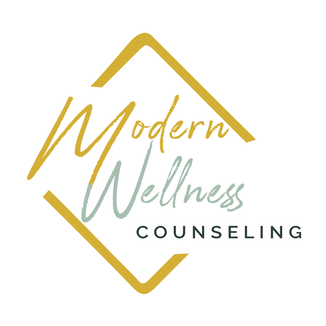Anxious attachment in relationships can influence our interactions, emotions, and overall well-being.
It is important to understand this attachment style is crucial for fostering healthier connections and personal growth.
In this blog, we’ll delve into what anxious attachment entails, its signs, impacts on relationships, and actionable strategies to cultivate more secure attachments.

What is Anxious Attachment?
Anxious attachment, a concept rooted in attachment theory, refers to a relational pattern characterized by a heightened fear of abandonment, excessive need for reassurance, and a tendency to cling to partners.
Individuals with anxious attachment often perceive relationships as unstable and worry about rejection or abandonment, leading to emotional volatility and insecurity.
Signs of Anxious Attachment:
- Constant Need for Reassurance: Individuals with anxious attachment seek constant validation and reassurance from their partners to alleviate their fears of abandonment.
2. Fear of Abandonment: Anxious attachers often fear being left alone or rejected by their partners, and can lead to clingy behavior and emotional distress.
3. Overanalyzing Interactions: They tend to overanalyze interactions, texts, and behaviors, looking for signs of rejection or disinterest from their partners.
4. Difficulty Trusting: Trust issues are prevalent among those with anxious attachment, as they may struggle to believe in their partner’s commitment and fidelity.
5. Emotional Volatility: Fluctuating between intense love and fear of rejection, individuals with anxious attachment may experience frequent mood swings and emotional highs and lows in their relationships.
Impacts of Anxious Attachment on Relationships
Conflict Escalation:
Anxious attachers’ fear of abandonment can lead to heightened conflict in relationships, as they may perceive minor disagreements as threats to the relationship’s stability.
Co-Dependency:
Anxious attachers may become overly dependent on their partners for emotional support and validation, which can strain the relationship and hinder growth.
Jealousy and Insecurity:
The constant need for reassurance and fear of abandonment can manifest as jealousy and insecurity, undermining trust and intimacy in the relationship.
Communication Challenges:
Difficulty expressing needs and concerns openly can hinder effective communication, leading to misunderstandings and resentment.
Self-Esteem Issues:
Anxious attachment can contribute to low self-esteem and negative self-image, as individuals may internalize feelings of unworthiness and inadequacy.
How to Recognize and Change Anxious Attachment:
Self-Awareness:
Recognize patterns of anxious attachment by reflecting on past relationships and identifying triggers for insecurity and fear.
Challenge Negative Beliefs:
Challenge negative beliefs about yourself and relationships by practicing self-compassion and reframing negative thoughts.
Develop Secure Coping Strategies:
Cultivate healthy coping mechanisms, and seeking support from friends or a therapist.
Communicate Openly:
Practice honest communication with your partner, expressing your needs, fears, and insecurities without fear of judgment or rejection.
Set Boundaries:
Establish clear boundaries in your relationships to maintain autonomy and self-respect, while also respecting your partner’s boundaries.
Build Self-Esteem:
Focus on building self-esteem and self-worth independent of external validation, through self-care, personal growth, and pursuing your passions.
Work on Trust: Work on building trust in yourself and your partner by acknowledging and challenging trust issues, practicing forgiveness, fostering respect and transparency.
Anxious attachment can present challenges in relationships, but with awareness, effort, and commitment to personal growth, it’s possible to cultivate more secure attachments and foster healthier connections.
By understanding signs and impacts of anxious attachment and implementing strategies for change, individuals can embark on a journey toward greater self-awareness, and intimacy in their relationships. Change takes time and patience, and the rewards of building secure attachments are always immeasurable.
Begin Online Couples Therapy in San Antonio, TX
Getting Scheduled
Getting started with a therapist for anxiety counseling is easy and convenient. You can schedule online through our client portal. If you are planning to use your insurance, please note that only a few clinicians accept limited insurance plans for couples therapy. You can give our office a call at 210-706-0392 and our intake coordinator can answer any questions you may have. If your insurance is accepted, she can get you scheduled and gather the needed insurance information.
What we need from you
In order to get scheduled for Online Anxious Attachment in Relationships, we will need the following from you (whether you schedule online or by phone): your full name, email address, and phone number. We do require you to make a $40 deposit to hold your intake session. This deposit goes toward your first session’s payment.
What to expect between scheduling and your session
After you get scheduled, you will receive a link to your secured client portal. You will have documents to sign and complete 24 hours before your intake session. This allows for your intake session to focus on your presenting issue. Ten minutes before your session, you will receive a secured link for your video call. You can use this link to join in on your online therapy session.
Other Therapy & Counseling Services at Modern Wellness Counseling
By: Priscilla Rodriguez, M.S., LMFT
I specialize in working with couples to enhance their intimacy and connection. I meet with couples virtually for therapy sessions and offer these services to any Texas residents. Online relationship classes are offered to couples who want to learn healthy relationship skills without going through therapy process. In these various forms, I share how couples can be consistent with healthy relationship skills. Want to say “thank you”?





